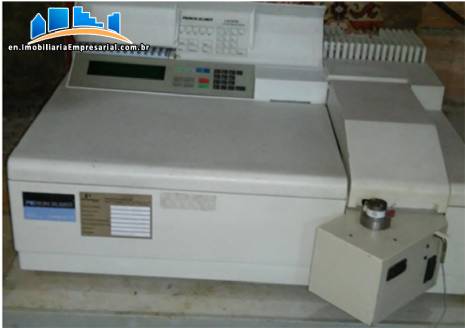Business For Sale
 Chromatographs Chromatographs
Main brands:
Agilent HP
|
| Chromatographs |
Chromatography is an analytical technique widely used in laboratories to separate, identify and quantify components of a mixture. There are several types of chromatography, each suitable for different applications. Here are some common types of chromatography and their applications in different types of laboratories:
1. High Performance Liquid Chromatography (HPLC):
What it is for: Used to separate, identify and quantify compounds in liquids.
How it works: The sample is injected into a chromatographic column where it interacts with a stationary phase. The separation is carried out with the help of a mobile phase (liquid) which is pumped through the column.
Laboratory types: Chemical, pharmaceutical, environmental, food and beverage laboratories.
2. Gas Chromatography (GC):
What it is for: Used to separate and analyze volatile compounds in gases.
How it works: The sample is vaporized and injected into a chromatographic column where it interacts with a stationary phase. The separation is carried out by a gaseous mobile phase.
Laboratory types: Chemical, environmental, pharmaceutical, forensic laboratories.
3. Thin Layer Chromatography (TLC):
What it is for: Used to separate and identify compounds in a mixture.
How it works: The sample is applied to a plate coated with a stationary phase. Separation occurs as the sample moves across the plate by capillary action.
Laboratory types: Research laboratories, organic chemistry, quality control.
4. Ion Exchange Chromatography:
What it is for: Used to separate ions based on their charges.
How it works: The stationary phase contains ionic groups and the ions in the sample interact with these groups. Separation is based on ionic affinity.
Laboratory types: Biochemical, pharmaceutical, water analysis laboratories.
5. Affinity Chromatography:
What it is for: Used to separate molecules based on specific interactions, such as antigen-antibody bonds.
How it works: The stationary phase contains specific ligands that selectively bind to target molecules.
Types of laboratory: Biochemical, pharmaceutical, biotechnology laboratories.
6. Normal Phase Chromatography:
What it is for: Used to separate compounds based on their polarities.
How it works: The stationary phase is polar, and separation occurs based on polarity interactions with the mobile phase.
Types of laboratory: Chemical, pharmaceutical, food analysis laboratories.
7. Size Exchange Chromatography (SEC):
What it is for: Used to separate molecules based on their sizes.
How it works: The stationary phase is made up of porous particles that allow larger molecules to pass through more quickly.
Types of laboratory: Biochemical, pharmaceutical, biotechnology laboratories.
These are just a few examples of chromatography techniques, and each one has its specific applications in different types of laboratories, depending on the analysis and research needs. |
|
|
|
 |
Brand: Agilent HP, CEM, Labconco, Mettler Toledo, Millipore, PerkinElmer, Phenomenex, Spectrum One, Toledo, Vankel
Laboratory analytical, pharmaceutical, clinical, chemical, and environmental.
Equipment in excellent condition.
Manufacturers of reference.
Description of analytical equipment and accessories.
- Microwave oven for calcination.
Brand: C... |
|
|
|
|
Visitation: Schedule date for visitation and check equipment availability. Merely illustrative images.
|
|
|
| |
|
|
Camargo Industrial acts exclusively as an advertising platform. All information, photos, descriptions, conditions, and equipment compliance are the sole responsibility of the advertisers, and it is up to the buyers to verify their accuracy before purchasing. Camargo Industrial does not guarantee the accuracy, completeness, legal and technical availability of the advertised equipment.
Workplace safety with machinery: The platform does not perform inspections or certifications. The suitability of equipment to standards is the responsibility of sellers and buyers.
|
 |
| |
|





